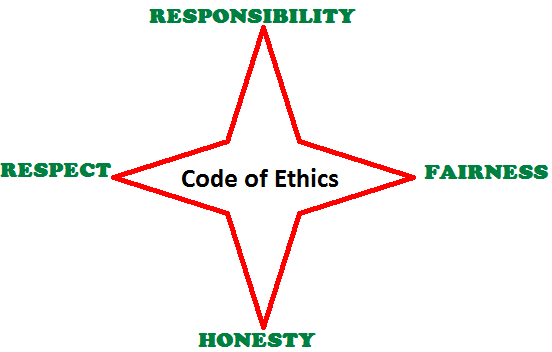
Project Management Ethics
Project Management Ethics
In “Understanding the Importance of Project Management Ethics,” you will gain valuable insight into the significance of ethical practices in the world of project management. With a focus on topics such as project management, programme management, and agile methodologies, this article aims to shed light on the role ethics play in shaping successful project outcomes. By exploring the concept of project management ethics, you will discover how maintaining ethical standards can lead to increased trust, improved stakeholder relationships, and overall project success. So, let’s delve into the realm of project management ethics and unlock the keys to a thriving and morally responsible project management approach.
Speak to MCTC today about our consultancy advice and training packages.

Understanding the Importance of Project Management Ethics
Project management is a vital discipline that encompasses a set of principles, methodologies, and tools to ensure successful project execution. However, beyond the technical aspects, project management also carries a significant ethical component that should not be overlooked. Project management ethics refers to the moral principles and standards that project managers adhere to in their decision-making processes and interactions with stakeholders. It involves responsible behaviour, transparency, respect, fairness, honesty, trustworthiness, and the protection of confidentiality and privacy. Understanding the importance of project management ethics is crucial for the successful delivery of projects and the long-term reputation of project managers and their organisations.
What is Project Management Ethics?
Project management ethics are the principles and values that guide the conduct of project managers in their interactions with team members, stakeholders, and the broader community. These ethics serve as a framework for project managers to make morally sound decisions and take actions that prioritise the well-being and interests of all involved parties. In the context of project management, ethics ensure that projects are executed with integrity, accountability, and transparency, ultimately leading to successful outcomes.
The Role of Ethics in Project Management
Ethics play a critical role in project management by shaping the behaviour and decision-making processes of project managers. They serve as a compass that helps project managers navigate complex situations and dilemmas, ensuring that they make ethical choices aligned with their values and organisational standards. By upholding ethical principles, project managers can foster trust, build strong relationships with stakeholders, enhance their professional reputation, and mitigate the risk of legal and financial repercussions. Moreover, ethics contribute to the overall success of projects by promoting fairness, accountability, and the responsible use of resources.
Ethical Standards for Project Managers
Ethical standards for project managers provide a set of guidelines and expectations for their behaviour and performance. These standards promote a culture of integrity, accountability, and ethical decision-making within project management practices. Let’s explore some of the key ethical standards that project managers should adhere to:
1. Responsibility and Accountability
Project managers have a responsibility to ensure the successful completion of projects within the established constraints and objectives. They should take ownership of their actions and decisions, acknowledging the impact they have on project outcomes and stakeholders. By being accountable for their work, project managers build trust and credibility with their team members and stakeholders, fostering a collaborative environment that encourages open communication and problem-solving.
2. Transparency and Integrity
Transparency and integrity are essential ethical standards for project managers. They involve being honest, open, and forthcoming in all project-related matters. Project managers should provide accurate and timely information to stakeholders, ensuring that they have a clear understanding of the project’s progress, risks, and challenges. By acting with transparency and integrity, project managers establish a foundation of trust and credibility, enabling effective collaboration among team members and stakeholders.
3. Respect and Fairness
Project managers should treat all individuals involved in the project with respect and fairness. They should value diverse perspectives, foster an inclusive environment, and ensure equal opportunities for all team members. Respecting and valuing the contributions of team members cultivates a positive and productive work culture, enhancing motivation, engagement, and creativity. Fairness further extends to the allocation of resources, opportunities, and rewards, ensuring that all stakeholders are treated equitably.
4. Honesty and Trustworthiness
Honesty and trustworthiness are fundamental ethical qualities for project managers. They require project managers to be truthful and reliable in their communication, action, and representation of project-related information. Project managers should uphold the highest ethical standards, delivering on their promises, and avoiding deceptive practices. By embodying honesty and trustworthiness, project managers establish credibility, build trust among stakeholders, and enable effective collaboration and decision-making.
5. Confidentiality and Privacy
Confidentiality and privacy are paramount ethical considerations in project management, especially when dealing with sensitive information and proprietary data. Project managers must respect the confidentiality of information shared by stakeholders, ensuring that it is protected from unauthorised access, use, or disclosure. Safeguarding the privacy and confidentiality of stakeholders and their data demonstrates professionalism, integrity, and a commitment to ethical conduct.

Conclusion
Understanding and adhering to project management ethics is essential for project managers to effectively navigate the complex landscape of project execution. By upholding ethical standards such as responsibility, transparency, respect, honesty, and confidentiality, project managers can cultivate trust, foster a positive work culture, and enhance the overall success of their projects. Embracing ethics not only benefits individual project managers but also contributes to the long-term reputation and success of organisations in the project management domain. As project management continues to evolve, incorporating ethical considerations will become increasingly vital for professionals to ensure the sustainable and responsible delivery of projects.
